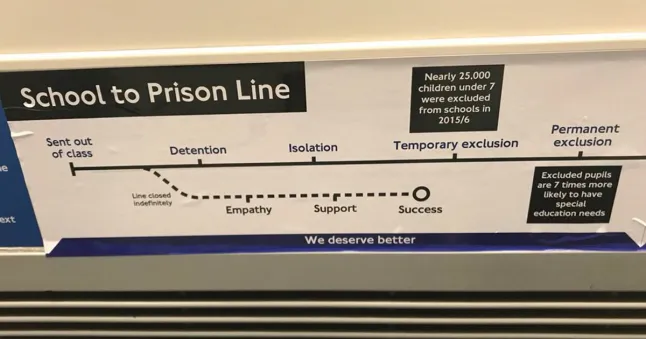I recall being puzzled a few years ago, when the languages department I was attached to invited me to present to them on how I go about teaching the skill of translation. I had assumed that the process of translation was almost synonymous with language work, and would be embedded into the teaching of all languages. It was news to me that a change in syllabus meant that translation from the target language into English was a new and hitherto under-explored field for modern linguists, and this belies my background as someone who has specialised in Latin.
When it comes to ancient languages, translation is what we do. Without delving into the thorny issue of justifying the value of studying Latin per se (!), it is a simple truth that the ultimate goal of this kind of study remains to be able to read and decipher a text that was written down in Latin and to translate it into English. Despite this obvious truth, a huge number of children who study the subject struggle with the process of translation, and it is worth reflecting upon why that might be.
Broadly speaking, the clients who get in touch with me asking for help for their child fall into two camps, and those camps tend to be based on age-group. Most of the people who want help for a younger child (say in Years 7-8) will say that their child is “okay with translating” but “struggles with the grammar”. This is always a massive red flag for impending disaster, for it means that their child’s translations are based entirely on instinct and guesswork; the child may have appeared to manage okay so far, but as things get harder they will fall apart and the child will soon find that they can comprehend very little of what’s in front of them. It is a drastic misconception, in my opinion, that “grammar” is something separate from “translation”. This really gets to the heart of Latin as a subject and belies why so many children need help with it. Grammar is not an optional luxury for those most deeply versed in the language: it is the beating heart of how the language works.
Parents of older children (broadly speaking in Years 9-11) tend to be the ones who are already experiencing the fall-out of translation without the systematic application of grammar rules. Students by this time find that their previously-successful methodologies of translating on instinct have all but collapsed. Parents of students who have reached this stage will usually tell me that their child struggles with absolutely everything and is on the verge of giving up. A few will say that their child is “okay with the grammar” (which means they have rote-learned their endings) but cannot make it work in the context of a translation. This less common scenario is what tends to happen with a highly-motivated student, generally successful in their studies, who has been told to “learn their endings” and has dutifully done so, but has not had the opportunity to sit down with somebody in one-to-one sessions and have the process of translation – actually making use of those endings – modelled and unpicked for them. This is not to say that their classroom teacher has not used the method of modelling, nor that they have not tried to dedicate some one-to-one attention to such a child. But the reality remains that such processes are remarkably difficult to embed and often require repeated, intensive one-to-one work to make a tangible difference to outcomes. This is especially true for a child that has developed the habit of translating on instinct and has not been drilled from the beginning to analyse Latin sentences rigorously. I’m afraid to say that the most popular text books used in secondary schools (the Cambridge Latin Course and Suburani) tend to encourage and compound such an approach. These courses are nicknamed “reading courses” and aim to encourage fluid and instinctive reading from the outset, eschewing the process of analysis. My personal experience with such an approach is that it is disastrous for a child’s long-term grasp of the subject and results in an inability to translate when things get even remotely complicated. Lots of people disagree with me on this, and if you’d like to hear me interview one or two of them, then listen to my podcast; in Season 2 Episode 1, I interview Caroline Bristow (Director of the Cambridge Schools Classics Project) and in Episode 6 I talk to David Carter, who is an advocate for a methodology called comprehensible input. If you’d like to hear me interview someone who shares my views, listen to Season 2 Episode 2 with Ed Clarke.
Much of my time in one-to-one sessions is spent asking students to justify their translation. When they tell me that rex deorum means “the king of the gods” … was that an easy guess based on the fact that they know the vocabulary? Or can they identify the fact that deorum is genitive plural, which is why it translates as “of the gods”? If they can’t unpick their reasoning behind very simple sentences, then in my experience they will never be able to translate more complex ones. My focus is therefore to present students with a variety of sentences, using vocabulary that is familiar to them, then challenge them to identify and articulate the morphology and syntax which justifies and explains their translation.
It is also important from the very beginning to present students with sentences which cannot be translated successfully without some kind of analysis. Even at the most rudimentary level, this is easy to do. While reading courses such as Suburani tend to encourage students to follow their natural instinct to read from left to right by using pronouns at the start of a sentences like English does, I prefer to present students with sentences that lack a noun or a pronoun as the subject, so they are forced to look at the verb ending in order to find out who is doing the action. During lockdown, I basically re-wrote the Cambridge Latin Course for my students and one of the main things I did was to remove all those subject pronouns. This change made an immediate and tangible difference to outcomes with the beginners in my classroom. From very early on, students were forced to cope with sentences such as ad tabernas festinas (you are hurrying to the shops) when previously they had been shown tu ad tabernas festinas, which means exactly the same thing but provides them with the subject (you) as vocabulary at the front of the sentence and hence removes the need to look at the verb ending; take away the subject pronoun, and the learner is forced to develop the correct habit of parsing the verb ending (festina-s, as opposed to festin-o or festina-t). Initially, of course, this slows the learner down, but the ultimate gain is the right kind of rigour, which will pay dividends in the long-term. While it will initially appear to take students longer to be able to translate basic sentences with fluidity and skill, their translations when they come will be based upon real understanding, not the false appearance of success. It is this false early success – in my opinion – that makes the reading courses so popular; students feel brilliantly successful in the early stages, but they are living in a house of cards.
By far the most common scenario presented to me as a tutor who specialises in supporting struggling students is a child who has enjoyed and appeared to thrive in Latin in Years 7-8, who then experienced an enormous crisis in Year 9 or at the start of their GCSE studies. These students feel cheated and let down, and understandably so. A lot of them come to me saying that they regret selecting the subject for GCSE and are convinced that they cannot do it. Happily, I am usually able to convince them that they can do it, but this involves unpicking the habits they have formed in the early years and retraining them from scratch. While reading courses such as Suburani and the CLC continue to dominate the market in secondary schools, I don’t see this situation changing in a hurry.







